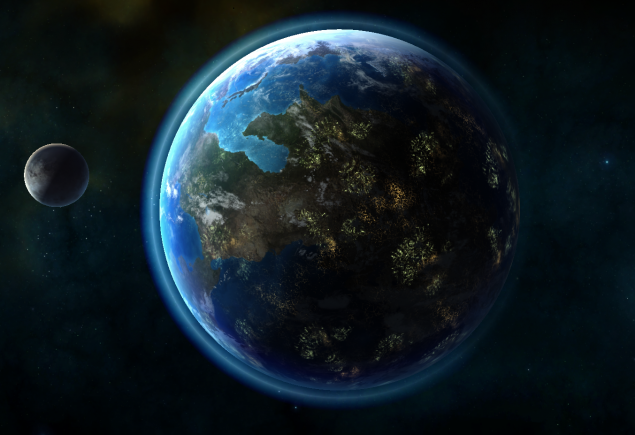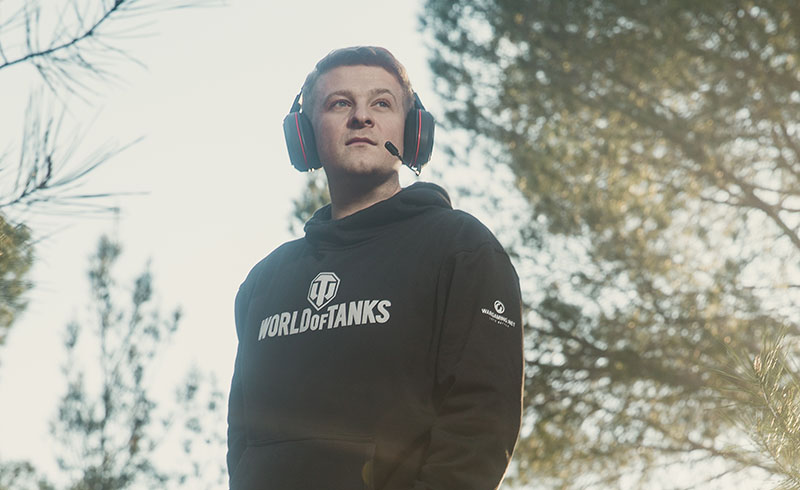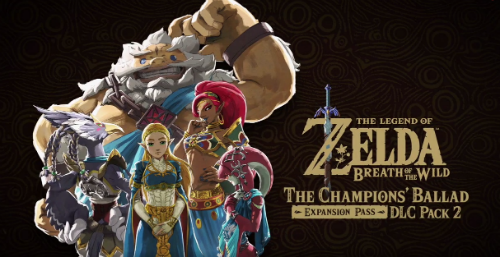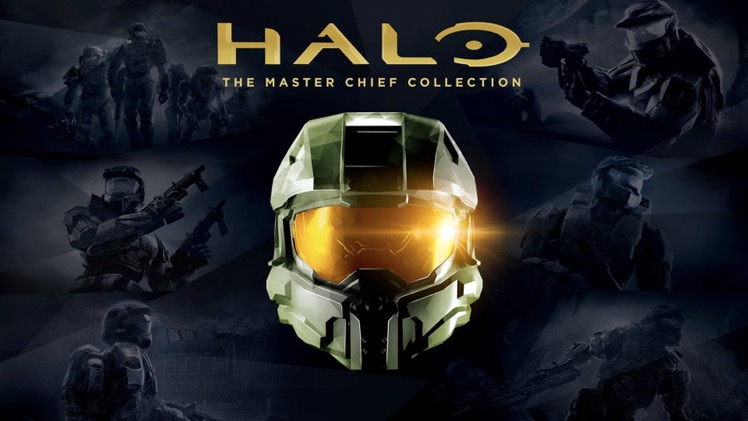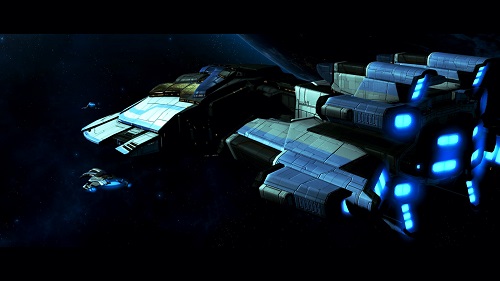
It’s been 13 years since Master of Orion 3 released in 2003 and Atari shelved the IP, seemingly for good, until Wargaming purchased it in 2013. Three years later the first game from this new ownership has been fully released, Master of Orion. Billed as a reboot of the once famous and well-regarded sci-fi turn-based 4X strategy IP, Master of Orion is a good strategy game, but it falls well short of the magnificence of the original.
Being a turn-based 4X strategy game, the most important aspect of Master of Orion is its gameplay systems and how well they work to create an engaging experience. As with many other 4X games, there are a number of different key systems that all intertwine to create a whole that is greater than the sum of their parts. Each of these systems (Diplomacy, Colonisation, Conquest and Technology) can be focused on as a way to reach your victory conditions or you can divide your efforts between all to go for the highest score possible. All are viable ways to win a game in Master of Orion, although some are easier than others.
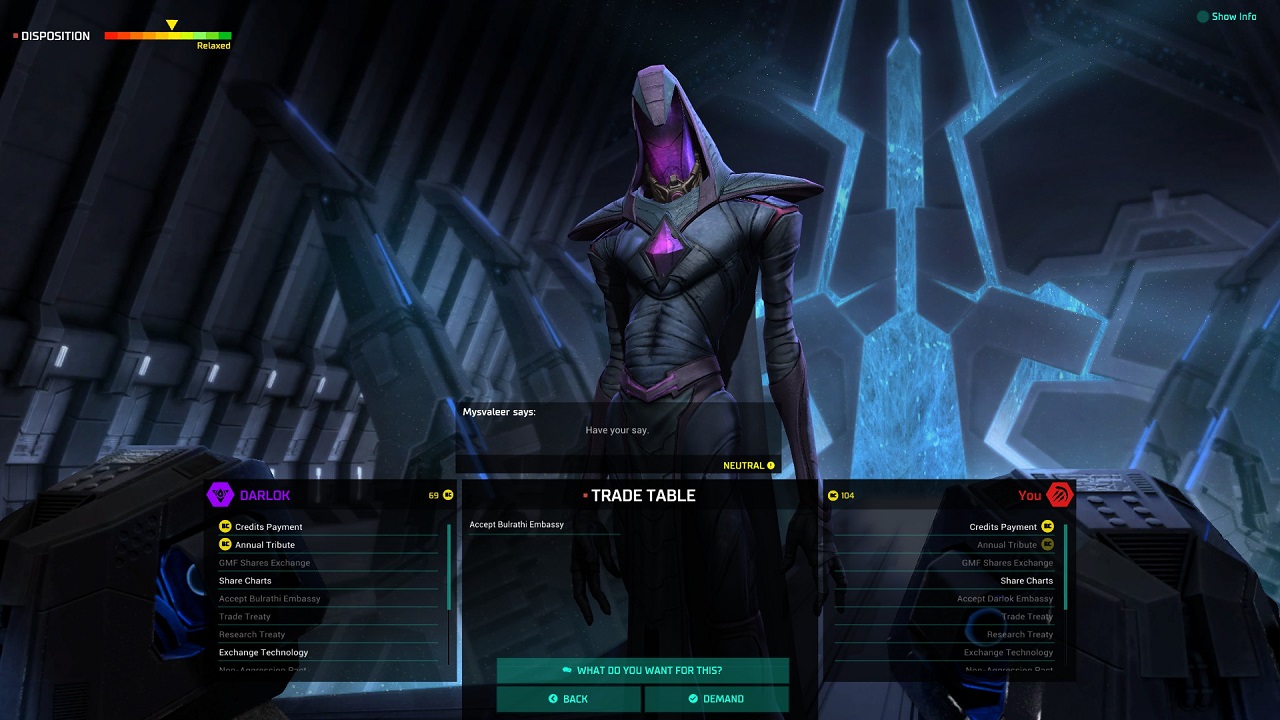
Diplomacy has always been a gameplay system that I have found interesting, especially due to the nuances and balancing acts required to use it effectively. Gradually building relationships with other races and bartering over treaties and trades can be a wholly satisfying experience. It’s a system that by its own nature has an inherent complexity to it that can be intimidating to many, but can be exquisitely utilised once mastered. In an effort to reduce that initial intimidation a new feature has been introduced in Master of Orion, the ‘What do you want for this?’ button. Effectively, during every single diplomatic meeting you initiate, there is a big button in the middle of the screen that automatically tells you what the other leader wants in order to agree to your request. While this assists with reducing the entry barrier to diplomacy, it also means that players can go through the entire game without learning about the system and how to use it. While this no doubt sounds inviting to some, I’m personally of the opinion that removing the strategy from a strategy game’s systems is somewhat of a step back.
Personally speaking, colonisation and growing territory have always been my favourite ways to play all strategy games. There is just something innately satisfying about pointing to 20 different planets and saying, ‘These are MINE’. In Master of Orion, colonisation is a large facet to increasing your strength and foothold in the galaxy, with each planet having a limit in how much life it can hold and a predilection towards a certain aspect of life. Some planets might be great at housing production plants, but they could be rubbish at sustaining and growing the population, so holding a variety of planets becomes a requirement. Colonisation is great fun on its own, but getting to those planets in the first place is underwhelming and travelling between galaxies to find new planets is underwhelming and uninspiring. While the star-map is absolutely gorgeous to look at, think of it like the map from Risk – except every continent is a single circle with no division within itself and they are connected by straight lines that take multiple turns to cross. While this is obviously meant to represent to incredibly vast nature of space, it results in multiple turns being filled with nothing but your ship moving along a line. Which is also probably the reason for the auto-turn feature in the game.
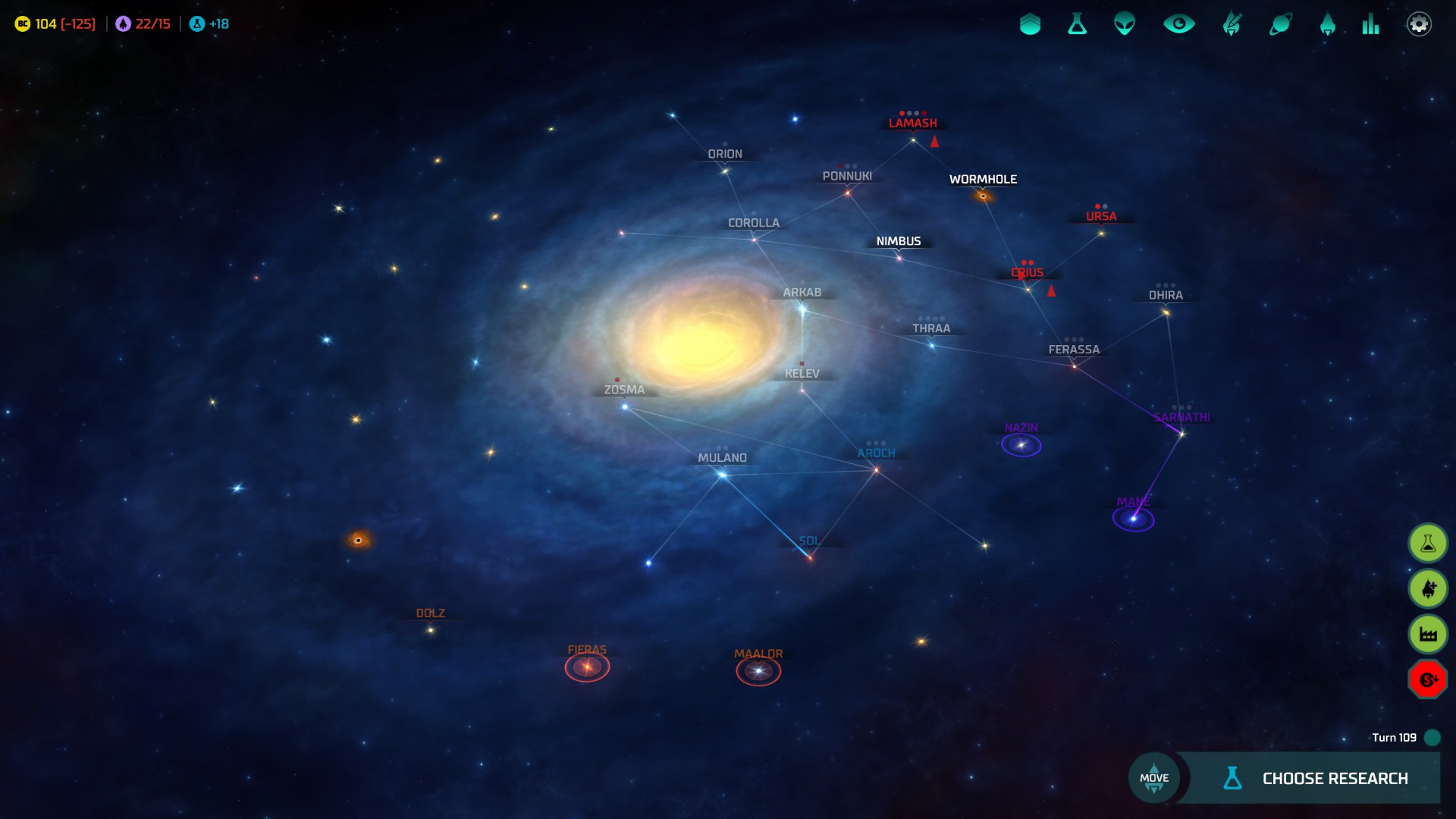
Conquest is the most universally known, and potentially the most historically accurate, form of victory in any and every strategy game you will have likely come across. Do you want that particularly rich planet that is held by another race? Bomb it from the sky and now it’s yours. Is that scout coming into your controlled space? Shoot it down to stop the other leaders from seeing the massive army you’re rather quickly amassing for your upcoming tour of the universe. The issue with conquest in Master of Orion is that it’s simply too viable and easy an option for victory. While not quite as quick and easy as a Zerg rush in Starcraft, it is far easier to build a large army of ships and unleash your horde upon the universe than take the considered approach and try to make nice with the other leaders. This might have been alright if the combat system in Master of Orion was intriguing, nuanced or flashy, however, it is none of these things. Combat takes place from a top-down perspective on a large circular battlefield, with only simplistic commands available. The map is also just empty space with a few ships and sometimes some asteroids. Zooming in close enough to see some of the action also means you lose sight of your ships and can no longer command them effectively unless you zoom back out. When the only way to see any real action during combat is by giving full control of your fleet over to an AI and watching cinematic camera angles, something isn’t right.
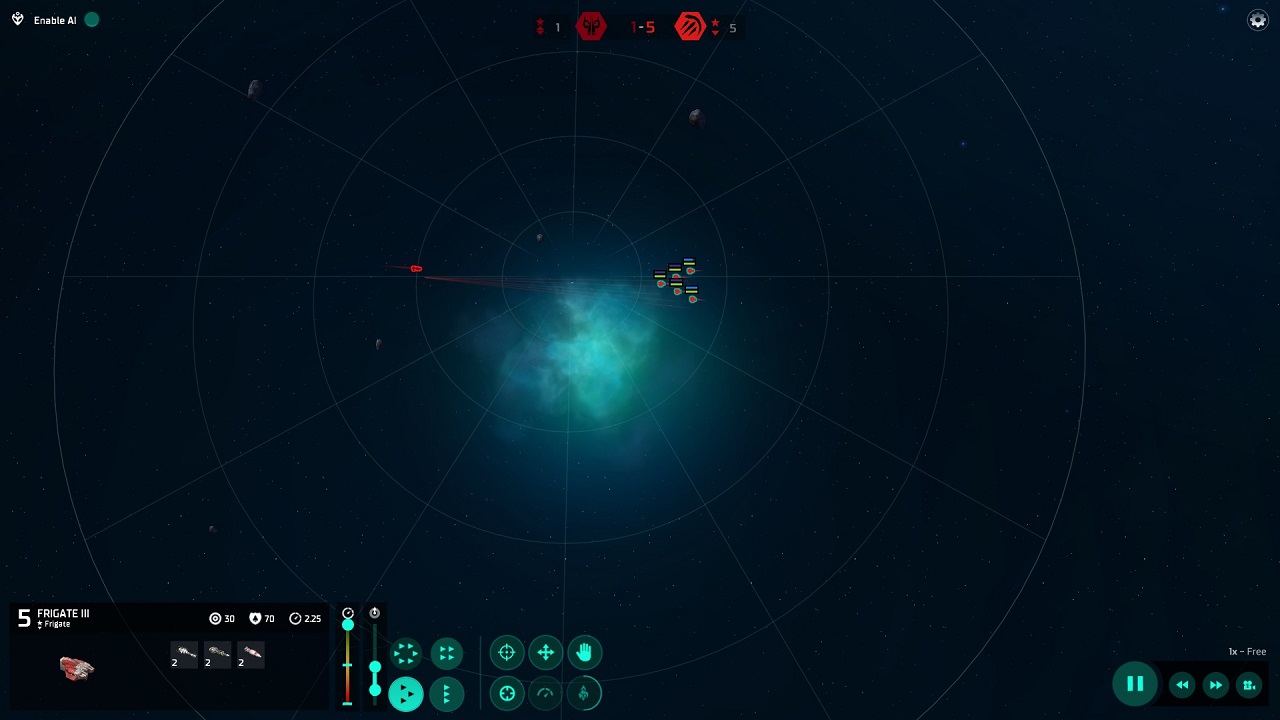
The final core system directly influences every other gameplay system in Master of Orion, and that is technological advancement. Technologies are researched one at a time, with each individual technology unlocking further technologies, ships, upgrades and building, further improving the quality of life (or destruction) within your game. You are free to research whatever technologies you want, with there being no monetary costs and no direct effects on populations. They also don’t seem to follow logical paths, with research in some fields leading to technologies that you would not expect and seemingly no logical progression from technology to technology. It almost felt as though there wasn’t necessarily a lot of care put into planning out how the technology tree would look and work.
One massive positive for Master of Orion is the absolutely stellar voicework within the game. Wargaming went big on the cast budget, which includes Mark Hamill, Alan Tudyk and Robert Englund to name a few, and it can be heard within the game. The voice acting is always on point, perfectly reflecting the dialogue and situations, with appropriate levels of surprise, shock and malice depending on what is needed. The same can be said for the orchestral soundtrack, which is an absolute delight to hear while exploring the universe and exterminating the other leader’s entire species.
Overall, Master of Orion is a good turn-based 4X strategy game, but it lacks the depth found in many other titles in the genre. The gameplay systems don’t feel fully realised, with various niggles found in each. The music, voicework and star map look wondrous, but that only solidifies my opinion that Master of Orion is all about flash, as opposed to substance. It’s still worth taking a look at if you’re in desperate need of a new 4X game, but there are better options out there.
-Gorgeous star map -Excellent voice acting
-Systems lack depth -Exploration is underwhelming -Combat is easy and boring

